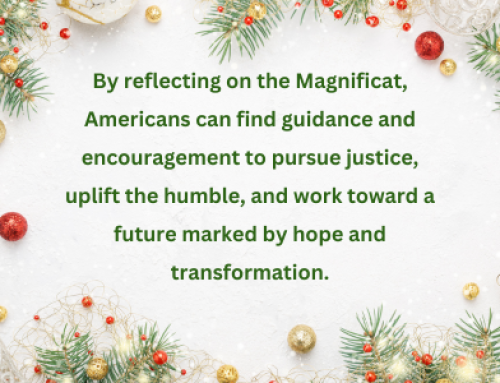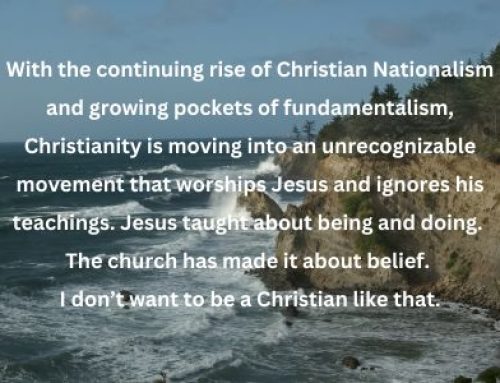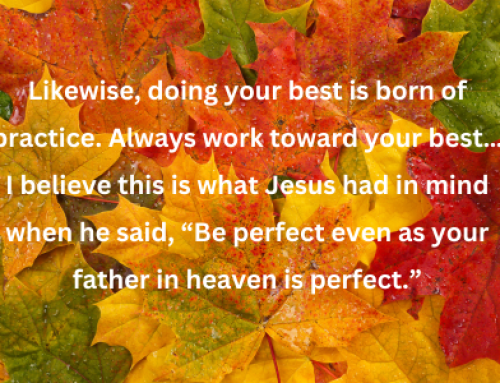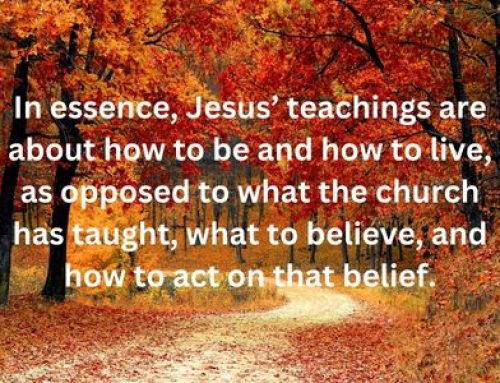Recent headline in our local paper, The Statesman-Journal, “Attorney General Pam Bondi Vows to Preserve Religious Freedom.”
According to the article, Bondi claims that religious liberty in the nation has come under attack. Donald Trump’s Religious Liberty Commission (didn’t know there was such a thing!), which met recently at the Museum of the Bible (?), says Americans must work to preserve religious freedom against emerging attacks.
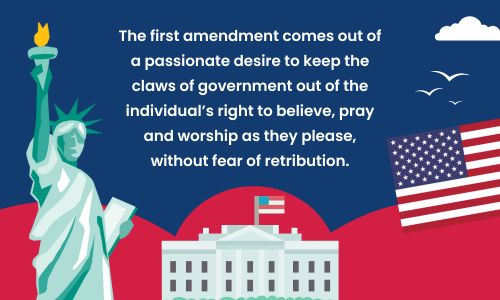 What are those emerging attacks? The two most obvious are gay rights and abortion, both of which were promoted by the Biden administration. Several members of those in attendance at the RLC claimed the main body of commission members share “very little diversity of thought.” A common theme of the meeting was the belief that the establishment clause of the First Amendment does not prevent the government from promoting religion. It can do that, and should do so. Furthermore, they said that the Founding Fathers had no intention of scrubbing religion from the public square. Truth be told, it was not religion they wanted to uphold but it was actually GOD. That notion was verified by putting “In God We Trust” on our money and other living documents.
What are those emerging attacks? The two most obvious are gay rights and abortion, both of which were promoted by the Biden administration. Several members of those in attendance at the RLC claimed the main body of commission members share “very little diversity of thought.” A common theme of the meeting was the belief that the establishment clause of the First Amendment does not prevent the government from promoting religion. It can do that, and should do so. Furthermore, they said that the Founding Fathers had no intention of scrubbing religion from the public square. Truth be told, it was not religion they wanted to uphold but it was actually GOD. That notion was verified by putting “In God We Trust” on our money and other living documents.
Nonetheless, as USA Today’s First Amendment reporter BrieAnna Frank concludes, “Bondi, who previously led the inaugural meeting of the ‘Task Force to Eradicate Anti-Christian Bias,’ said the Department of Justice will use every legal and constitutional tool available to uphold religious liberty.”
Let’s revisit this issue of religious liberty as implied by the First Amendment and give unequivocal assurance that our religious liberty has not been decimated but remains firm and resolute. The First Amendment reads: CONGRESS SHALL MAKE NO LAW RESPECTING AN ESTABLISHMENT OF RELIGION, OR PROHIBITING THE FREE EXERCISE THEREOF.
To understand the scope of this amendment we need to understand the background from which it came.
Historically, the religious liberty issue is found in the philosophy and guardianship of Roger Williams, one of the early fathers of Baptist tradition. Stanley Lemons, author of “The First Baptist Church in America,” gives us a nice overview of this history. He tells the story like this: Williams was part of the Puritan migration to New England, arriving in Boston in 1631. The Ecclesiastical fathers in Massachusetts wanted a purified Church of England. Williams wanted to separate entirely from the Anglican Church; after all, that’s why he left England. Williams preached what he called “soul Liberty” which rejected the idea that the civil authorities could intervene in matters of religion and conscience. He demanded complete separation of church and state as he declared that, “forced worship stinks in the nostrils of God.”
Consequently, Roger’s ideas threatened the religious, political and economic bases of the colony. By 1635, the magistrates had had enough of Williams’s radical ideas. He was tried and convicted of sedition, heresy and refusing to swear an oath of allegiance in God’s name. Williams believed it blasphemy to use God’s name in a civil proceeding. Williams was banned from Massachusetts.
Williams wrote two treatises on religious liberty, “The Bloudy Tenant of Persecution” and later “The Bloudy Tenant yet More Bloudy.” The former was his personal beliefs put on paper. The latter was a critique of J. Cotton, the formidable voice of the Church of England in Massachusetts, who believed that government must sustain the church. Williams argued that government control of religion eventually meant government control of all areas of human endeavor. Williams maintained that the government had no right to persecute him for his religious opinions, and furthermore, he ought to be able to state them without fear of retribution.
It’s out of this background that Thomas Jefferson and James Madison formulate the First Amendment, giving credit to Roger Williams for his critical thinking on the matter.
Although the words “separation of church and state” are not found in the text of the Constitution, the principle of separation of church and state is at the core of the First Amendment’s provision for religious liberty. We know that the First Amendment provides us with religious liberty, yet, like the term “separation of church and state” the words “religious liberty” are also not found in the Constitution.
The term “separation of church and state” means more than the absence of a state church; instead, the principle serves to prevent one institution from supporting and controlling the other. Rather than being anti-religious, the separation of church and state is essential for religious liberty and the growth of religious communities. It is because of church and state separation that religion has flourished in the US. In addition to spawning over 300 denominations of Christianity, the US has been the birthplace of Mormonism, Jehovah’s Witness, Christian Science, Seventh Day Adventists, and a host of others. America is the most religiously diverse country in the world.
The separation of church and state ensures the autonomy of religion, while it acts as a check on possible governmental overreach into the rights of conscience. It assures that no citizen be forced to attend a religious service of any kind or support any one religion. Separation of church and state does not mean the removal of religious influences in our society; instead, it means a secular government that is truly neutral on religious matters.
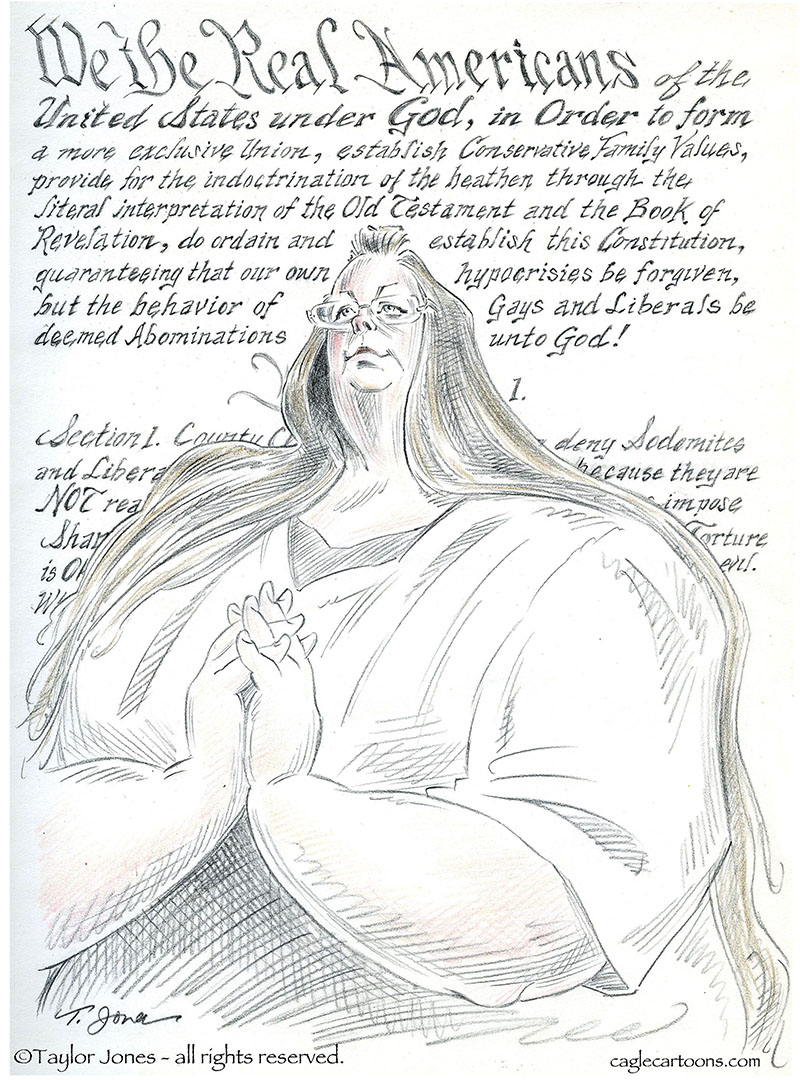 The First Amendment comes out of a passionate desire to keep the claws of government out of the individual’s right to believe, pray and worship as they please, without fear of retribution.
The First Amendment comes out of a passionate desire to keep the claws of government out of the individual’s right to believe, pray and worship as they please, without fear of retribution.
This issue gets complicated by the fact that the Supreme Court has outlawed school prayer, the posting of the Ten Commandments, or any notions that imply a particular religious persuasion. Perhaps there’s been an overreaction by the courts and the government regarding religious liberties. However, as long as teachers give tests, there will always be prayer in schools!
I don’t have a problem with this issue. I believe that the intentions of the framers of the Constitution were both purposeful and necessary. However, I believe that there is some clarification that needs to be gleaned in this matter, and it deals with our understanding of what we mean by religion. Generally, when we think of religion, we think of Christianity because that’s where we are, and inherently believe that our nation was founded on Christian principles, a notion most likely held by Trump’s Religious Liberty Commission and certainly a whole cast of Evangelicals. Contrary to popular belief, the Founding Fathers intentionally denied giving Christianity credit for the outline of the Constitution.
Many of the framers of the Constitution were not Christians in the way we think of ourselves today. Many of them were Deists, who were not interested in following Christ, but they did have an undeniable trust and belief in God. And that brings us, I believe, to the point of religious liberty as they saw it and wanted it implied to us.
A religion can be any expression of belief that tries to give understanding to God, whoever or whatever God may be. Whatever your ultimate concern is, that is your religion. It could be money or power; it could even be nationalism or patriotism. The framers understood this and consequently, intentionally chose to keep the idea of religion, because of what it could become, separate from the affairs of state.
Jesus was constantly critical of the Pharisees because they were a religion of laws, rules, customs and practices. This by itself is not a bad thing, but left to its own device, such trappings become shallow and trivial. This basically can define any religion. True religion, i.e., spirituality, is about a relationship between the individual and God. It’s not so much about thou-shalt-nots and thou-shalts, but about how well we love and care for one another.
So, if we strip religion of its baggage…that is, all the ecclesiastical rules and cultural customs, basically what is left is the idea of God. And that, dear friends, is the very premise on which the First Amendment, yeah, the Constitution of this great country, is based. God alone, as creator, nurturer, and Holy Father in whom we move and have our being.
I would have you know that nowhere in our Constitution is it specified that we must separate God and the state. The framers knew instinctively that a nation without God would be less than adequate.
If we were to separate God and the state, we would have to recall every coin and piece of currency issued by the state and strike out “In God we Trust.” We would have to amend our Pledge of Allegiance and all references to God in our government documents. Trying to legislate God out of our daily lives would contribute to the growing spiritual deficit that our world is already experiencing. We would have to do away with the chaplains of the House and Senate, who begin each session of Congress with prayer. But you see, it’s impossible to get rid of God…the psalmist reminds us…”where can I go….” (Psalm 139)
The framers recognized a God without religious trappings. Even though they brought a particular point of view to the table, they knew they did not want the country to become inclusive to a minority or majority populist charismatic preacher.
If you want a picture of religious intolerance, look into the religious practices of any faith with fundamentalist leanings. Whether it be fundamentalist Christians, Muslims, or whomever, many fundamentalist groups are bigoted, one-dimensional groups that create fear in the life of their community to keep them faithful. That is a cult, not true religion.
Getting back to AG Bondi, she and her minions want nothing more than to make Christianity a national religion. Religious liberty through her eyes and those akin, want religious liberty to mean you are only free to choose Christianity, but Christianity with the dogma of the faithful…as THEY understand it. Religious liberty in Bondi’s eyes seems to mean religious intolerance to all religious traditions except for the national dogma of Christianity.
Whatever your personal faith practice might be, you get the privilege to practice and interpret the faith from your own experience; not from what others, even the government, says, and maintain they should be. I relish that…I thank God that the Founding Fathers had the insight to establish for us a heritage of religious freedom and one that will always respect and honor God, and know that what ever happens to us as a nation, IN GOD WE TRUST.
__________________________________________________________
Sources: Gannett’s Statesman-Journal article reprinted from sister publication, USA Today, 6/17/25: Attorney General Pam Bondi vows to preserve religious freedom against ’emerging threats’
